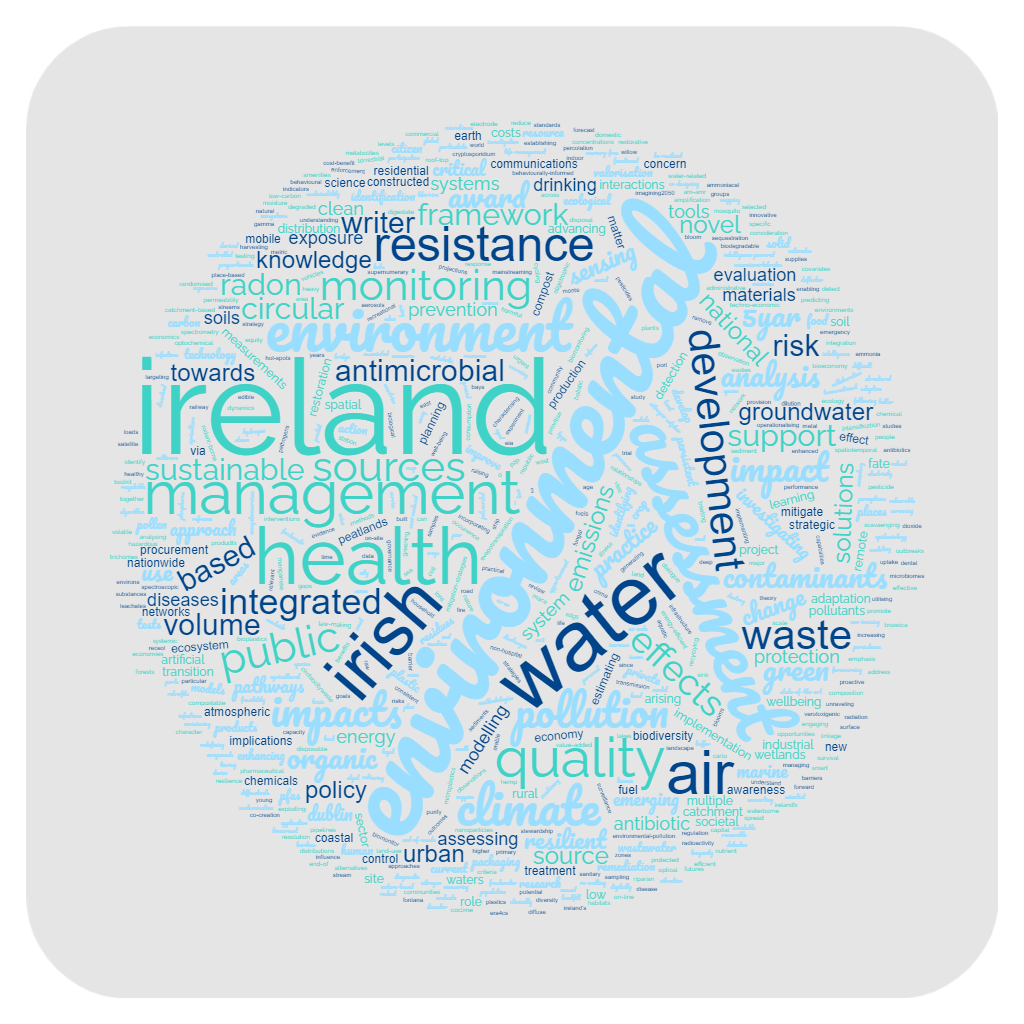Regulation and policy
Within Ireland, environment and health is an area of growing public interest and involves many organisations from both health and environmental perspectives. Under its environmental protection mandate, the EPA delivers direct and indirect benefits to human health through controlling harmful substances, as well as emissions from licensed facilities; maintaining a supervisory function with regard to the provision of safe and secure drinking water; bathing water reporting; research; and monitoring of the quality of our environment, including surface and ground waters, ecosystem quality and ambient air quality.
The EPA’s Health Advisory Committee brings representatives from public health authorities together to advise the EPA on carrying out its functions in the context of health protection. The concept of health assessment has also been established as a component of Environmental Impact Assessment. Through this process, the potential health effects of a development on the local population are considered – in terms of both positive and negative impacts. Such assessments combine evidence from research and monitoring with independent expert opinion to provide a clear understanding of potential direct and indirect health impacts, and to identify adjustments to mitigate future problems.
At a European level the key driver of policy is sustainability, with respect to societal, economic and environmental aspects. The EU Green Deal, the cornerstone of the incoming European Commission’s agenda, sets out a number of clear ambitions to deliver a green transition, with sustainability as the core element across all policy areas. The Green Deal will also be supported by the 8th Environment Action Programme (EAP) which is due to be published in 2020 and will set the ambition level of Europe out to 2030. One of the elements of the Green Deal/Action plan is a ‘zero pollution ambition’ in order to protect citizens health, and this will include specific action plans and strategies for clean water, clean air, sustainable use of chemicals and further limiting industrial emissions. The other elements of the Green Deal and 8th EAP will also very much support the provision of a healthy environment, delivering elements such as protection and restoration of nature, sustainable food, circular economy, limiting climate change impacts and a just transition fund to support those regions and people that are potentially adversely affected by the green transition (for example, where there is high employment related to fossil fuel extraction).
Healthy food
From an environmental and human health point of view the concept of “healthy food” is largely concerned with ensuring that foods are free from contamination associated with chemical or biological pollution. A healthy, safe and clean environment is critical to ensuring the production of safe, healthy and sustainable foods. Careful regulation is necessary to ensure that food-growing areas are not adversely impacted by, for example, poorly treated waste water, air pollution, landspread wastes, and badly managed farm chemicals. Care is also required around the reintroduction of by-products into the food chain to avoid unintended contamination. The Food Safety Authority of Ireland is the main body responsible for implementing food safety legislation in Ireland, however there are obviously many synergies between food safety and environment, with the provision of a clean environment being critical to the provision of healthy food.
EPA Research Programme
EPA Research 2030 is a 10-year high-level research programming framework and funding will be allocated under four interconnected research hubs. From 2021, Environment and wellbeing-related research will be principally funded under the EPA Research 2030 Research Hub on Delivering a safer environment. A clean, vibrant and safe environment is a prerequisite for good health and wellbeing. Environmental degradation, pollution, as well as known and emerging substances of concern threaten our health and that of our supporting ecosystems. Research under this hub will contribute to understanding the risks and benefits, and to identifying appropriate policy and behavioural responses.
Previously, under its EPA Research Programme 2014-2020, the EPA provided funding for a diverse number of research projects which aim to generate data, improve understanding and address national level issues related to Environment, Health and Wellbeing.
Details of the latest EPA Funding Research Opportunities and Awards are available from here.
EPA-funded Research Projects
Since 2014, the EPA funded more than 120 research projects (as of March 2023) relevant to the Environment, Health and Wellbeing area mostly under its Sustainability Pillar (Health & Wellbeing Theme), Water Pillar (Safe Water Theme) and Climate Pillar (Air Quality Theme), corresponding to a commitment of over €21 million.
Some of the ongoing research funded by the EPA investigates:
• Per- and poly-fluoroalkylated substances. (PFAS).
• Radon and deep energy-efficient retrofits.
• Manganese in drinking water.
• Persistent, mobile and toxic chemicals in the aquatic environment.
• Population and human health in Strategic Environmental Assessment.
• Environmental aspects of hydrogen production.
• Non-ionising radiation from major electricity infrastructure.
• Residential solid fuel use.
• Impact of NO2 on health with particular emphasis on vulnerable groups.
• Antimicrobial resistance.
• Noise.
• Evaluating health benefits derived from green and blue spaces.
• Microplastics.

For more details regarding the EPA-funded projects, please go to our Public Searchable Projects Database.
EPA Research Publications
To date, 54 EPA Research Reports have been published in relation to Environment & Health (as of March 2023).